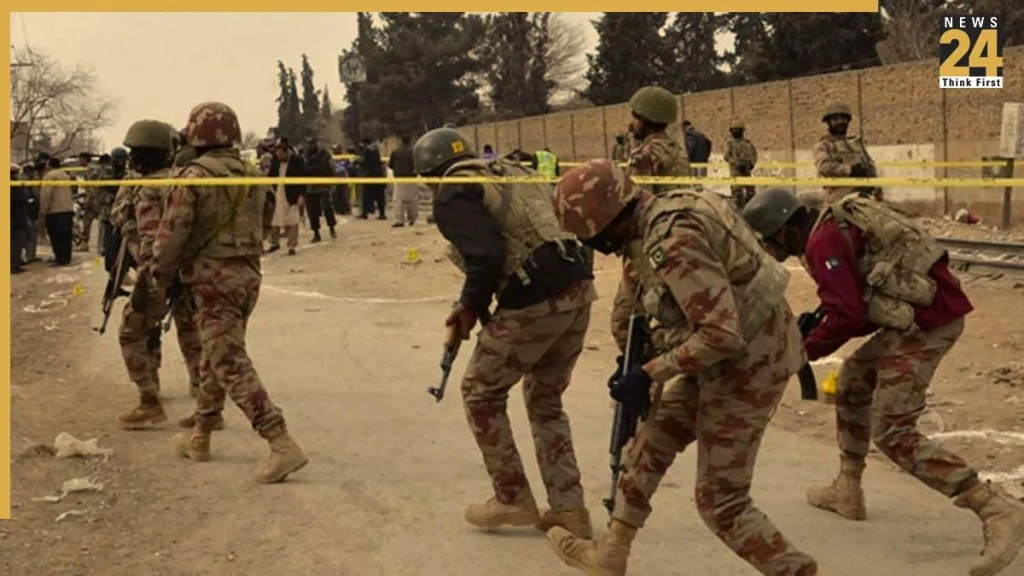As the world witnessed the release of 20 Israeli hostages as part of the first phase of a Gaza peace plan, a new conflict erupted and caught the attention of US President Donald Trump, who has claimed to have solved several wars.
Speaking to reporters on board Air Force One ahead of his visit to Israel on Monday, Trump said, “And I hear there is a war now going on between Pakistan and Afghanistan. I said, I’ll have to wait till I get back. I am doing another one. Because I am good at solving wars.”
The comments came after border clashes over the weekend, with troops from both Afghanistan and Pakistan exchanging fire at multiple locations along the 2,600-kilometre Durand Line. Both sides claim to have captured and destroyed border posts.
Why are Pakistan and Afghanistan fighting, and what does it mean for India? Here’s all you need to know:
Pakistan-Afghanistan conflict
Clashes erupted on Saturday night when Afghanistan’s Taliban forces opened fire on Pakistani troops along their shared border, describing the attacks as “retaliation for air strikes carried out by the Pakistani army on Kabul” on Thursday.
Pakistan has said it has the right to defend itself against militancy it claims is being planned from Afghanistan, but it did not admit to carrying out the strikes. The clashes took place at several locations, including Angoor Adda, Bajaur, Kurram, Dir, and Chitral in Khyber Pakhtunkhwa province, as well as Bahram Chah in Balochistan.
Taliban government spokesman Zabihullah Mujahid said on Sunday that the clashes left 58 Pakistani soldiers dead and around 30 injured, along with nine Taliban fighters. Pakistan, however, gave different figures, reporting 23 soldiers killed and more than 200 Taliban and allied troops dead.
The Pakistani military also said it destroyed several Taliban positions along the border and that “21 hostile positions on the Afghan side of the border were also briefly physically captured and multiple terrorist training camps used to plan and facilitate attacks against Pakistan were rendered inoperative.”
“Last night’s episode vindicates Pakistan’s long-standing position that the Taliban government is actively facilitating the terrorists,” said the Inter-Services Public Relations (ISPR), the Pakistan military’s media wing.
Meanwhile, Afghan Foreign Minister Amir Khan Muttaqi, who is on a visit to India, said on Sunday the “situation is under control”. “Our operation last night achieved its objectives. And then our friends like Qatar and Saudi Arabia appealed that war must stop now, and the war is ceased right now,” he said.
Officials said the Pakistan-Afghan border remains tense, but no new clashes have been reported since Sunday morning. Key border crossings were closed on Sunday, and additional troops have been deployed to the main crossing at Torkham, which lies between Kabul and Islamabad.
Why are Pakistan and Afghanistan fighting?
The clashes between the two countries were triggered after Pakistan allegedly carried out strikes in Afghanistan on Thursday. The Taliban Defence Ministry said two explosions were heard in Kabul, and another struck a civilian market in the border province of Paktika on Friday.
The Taliban government alleged that Pakistan violated Afghanistan’s “sovereign territory.” According to a Pakistani security official, the air strikes targeted the leader of the Tehrik-e Taliban Pakistan (TTP), or Pakistan Taliban, who was travelling in a vehicle in Kabul, Reuters reported.
Pakistan has often accused Kabul of sheltering Pakistani militants, particularly the TTP, who carry out attacks from Afghan soil. The TTP has been responsible for some of the deadliest attacks in Pakistan, including the December 2014 attack on the Army Public School in Peshawar, which killed 132 students aged eight to 18 and nine staff members.
Pakistan’s motive has been to rein them in, and it has been launching strikes on the alleged launch pads of the TTP. The recent flare-up is also linked to years of mistrust and repeated clashes along the 2,611-km Durand Line, which Afghanistan has never formally recognised. Tensions have been further fuelled by Pakistan’s deportation of Afghan refugees
What does it mean for India?
The conflict between Pakistan and Afghanistan comes as Taliban Foreign Minister Amir Khan Muttaqi is in India on a six-day visit. Ibraheem Bahiss, a Kabul-based senior analyst for the International Crisis Group, said Muttaqi’s red-carpet welcome in India was “probably a factor in the ultimate decision by the Pakistan army to escalate in the major way that we saw.”
Notably, during his bilateral meeting with Muttaqi, External Affairs Minister S Jaishankar announced that India would upgrade its Technical Mission in Kabul to the status of the Embassy of India.
“India is fully committed to the sovereignty, territorial integrity and independence of Afghanistan. To enhance that, I am pleased to announce today the upgrading of India’s Technical Mission in Kabul to the status of Embassy of India,” Jaishankar said.
A joint statement issued after the meeting said: “Both sides unequivocally condemned all acts of terrorism emanating from regional countries. They underscored the importance of promoting peace, stability and mutual trust in the region.”
Following the meeting, Pakistan summoned the Afghan ambassador to express its “strong reservations” over references made to Jammu and Kashmir in the India-Afghanistan joint statement. In a statement, the Foreign Office (FO) said the Additional Foreign Secretary (West Asia & Afghanistan) conveyed Pakistan’s strong objection to the Afghan envoy over the mention of Jammu and Kashmir.
“It was conveyed that the reference to Jammu and Kashmir as part of India is in clear violation of the relevant UN Security Council resolutions…,” the Foreign Office said.
